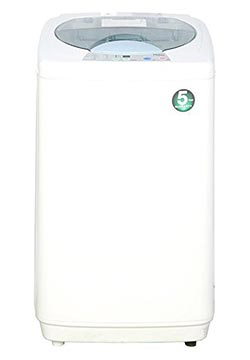How to Choose the Best Boiler for Your Home
Purchasing a new boiler is one of the most expensive, yet essential investment one would have to make for their home. Not only is a reliable boiler an important element of your property’s heating system, but it comes in handy when making a fast house sale. Most buyers will consider the condition of the boiler before completing a property purchase.
An efficient boiler also goes a long way in saving you a significant amount on your yearly heating bill. This is why the decision to buy a boiler remains vital for every homeowner. Here are some tips on how to identify the perfect boiler for your home.

Identify the Boiler Type Best Suited to Your Needs
There are three common types of boilers, including the combi, conventional, and system boilers. The type of boiler you choose is influenced by such factors as efficiency, cost, size, and output. Combi boilers, for example, do not require a storage tank as they heat water on demand. On the other hand, a conventional boiler needs two storage tanks; one for cold water and the other for the heated water. A system boiler compares with a conventional boiler. However, a system boiler does not require an extra storage tank for cold water as most of its components are inbuilt. Among the three types of boilers, the combi (combination) boilers are the most popular choice for a significant number of homeowners.
Get Professional Opinion
When buying a new boiler for your home, your boiler repair expert or engineer may be a great source of information on the best boiler. These boiler repair specialists will guide you on the essential elements, types, and sizes of boilers that are suited to your residential needs, after a thorough evaluation of your property structure in relation to your household needs. You want your property to have expert-recommended equipment when the time to sell family home comes.
Consider the Energy Efficiency of a Boiler
Generally, modern boilers are designed to save a significant amount of your energy bill. However, how efficient a boiler is in cutting down on energy costs can be determined by considering its AFUE rating. The Annual Fuel Utilisation Efficiency (AFUE) rating is a score that defines how much energy is being translated into useable heat. Boilers with high energy efficiency will have an AFUE score between 90 and 98.5 %.
Identify the Right Boiler Sizing
While evaluating the efficiency of a boiler remains crucial for any buyer, considering the right boiler sizing is equally fundamental. This is because if a boiler is oversized, it will result in high costs of energy bills. On the other hand, an undersized boiler might not be efficient enough to serve your residential property. You might want to work with a professional gas safe engineer who will use the recommended manuals to calculate the right size and boiler type for your home. Such a calculation will take into account various factors, including air filtration, wall thickness, property’s foundation, and insulation values. If you intend to sell family home, then this boiler feature will come in handy for a buyer who is interested in a right-sized boiler in a property.
Choose the Right Fuel Type
There are two types of fuels used to run the various models of boilers, including oil and gas. In most cases, the type of fuel you choose is influenced by what is available within your region. However, it is essential to know that gas-fueled boilers are cheaper to operate, and they are environmentally friendly as well. Most homeowners have their homes equipped with central heating systems that operate using gas boilers. It is important to consult a gas safe engineer when choosing your supplier. This is because the type of fuel you choose might affect your deal when facilitating a fast house sale in the future.
Pay attention to the Key Features of a Boiler
The efficiency of any boiler installation is influenced by the key features of the boiler used. Such features include the combustion and condensing aspects of the boiler. Condensing boilers, for example, are highly energy-efficient as they produce more heat under low temperatures. This is contrary to non-condensing boilers which vents out more heat outside a home while they operate under high temperatures.
On the other hand, boiler installation that operates as a sealed combustion unit is more energy-efficient compared to non-sealed combustion boilers. This is because the sealed combustion unit directs air driven from the outside into the burner, as it redirects exhaust gases to the outside. Non-sealed combustion units, however, directs heated air into the burner then redirects it outside through a chimney. This results in a wastage of energy used to heat the air.
Do Not Forget the Heating Controls
When undertaking a boiler repair or new installation, it is essential to consider the boiler’s heating controls. Heating controls allow you to determine where, at what temperature, and when your heating system should operate. This is something that your boiler repair expert can help you with.




